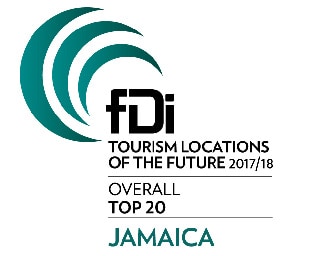Caribbean to Develop Disaster Risk Management Strategy
NASSAU, Bahamas – Professionals in the disaster risk management field met in Nassau this past weekend (April 26) to build consensus for the development of a strategy and plan of action to buffer the regional tourism sector against disasters.
The one-day workshop at the Wyndham Nassau Resort was officially opened by Director General of Tourism Ms. Vernice Walkine.
Ms. Walkine said she was delighted the workshop was held in The Bahamas, “given the vulnerability of the tourism sector to natural hazards.
The workshop was sponsored by the Caribbean Disaster Emergency Response Agency (CDERA), with the support of the Inter-American Development Bank (IDB), the Caribbean Tourism Organisation CTO), CARICOM Regional Organisation for Standards and Quality and the University of the West Indies.
The purpose was to seek ways to implement the Regional Disaster Risk Management for Sustainable Tourism in the Caribbean Project over the period January, 2007 to June, 2010. Under the project, a Regional Disaster Risk Management Strategy and Plan of Action for the tourism sector will be developed through the collective action of regional as well as national stakeholders in both the tourism and disaster sectors.
The Bahamas is part of five pilot countries selected for the workshop, which focuses on providing an opportunity for tourism stakeholders including hotel operators, travel agencies, food and service organisations and local government authorities, to contribute and participate in the development of clear guidelines on an action strategy necessary to mitigate the effects of disasters.
The tourism sector in our region has over the long haul proven to be a resilient industry, Ms Walkine said. It has survived relatively well, the effects of natural hazards such as hurricanes, storms, floods, volcanic eruptions, health and environmental challenges as well as man-made disasters, most notably the events of September 11, 2001.
She pointed out that while the region cannot completely prevent a crisis or a disaster, it could help to control its effects and its impact.
It calls for preparation. If we are to better manage emergencies, it is important that as a group we are equipped to successfully implement a coordinated plan involving all the relevant stakeholders in order to moderate the crisis, Ms Walkine said. “This necessitates a standardized methodology for hazard mapping, vulnerability assessment and economic valuation for risk management for the tourism sector.
She noted that a key factor in the development of any Regional Disaster Risk Management Strategy action plan is the need for it to be in harmony with practices of Caribbean countries and to foster the transfer of knowledge, skills and experience with respect to issues of disaster risk management.
According to CDERA, the strategy will harmonise national practices to promote region-wide sustainable tourism and foster the transfer of knowledge, skills and experience on key issues of disaster risk management.
In preparation for the workshop, CDERA commissioned a background study on the tourism sector as it relates to disaster risk management, which was utilised in the development of a draft outline DRM Strategy and Plan of Action for the tourism sector.
Participants were divided into four working groups to review the draft outline DRM Strategy and Action Plan and make recommendations for the enhancement outline.



